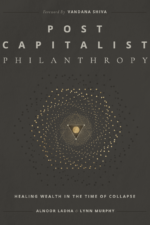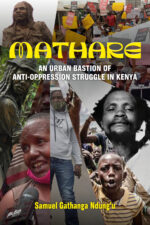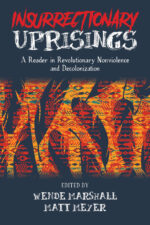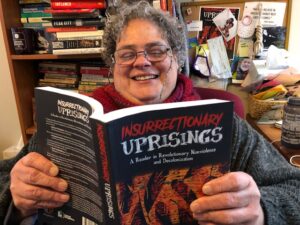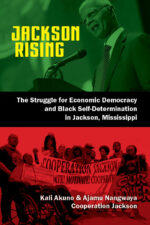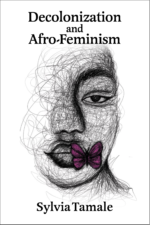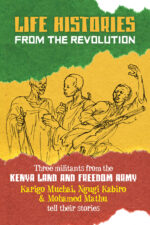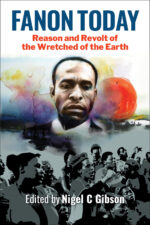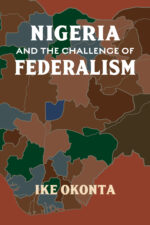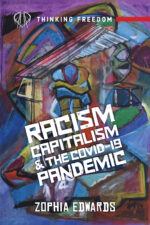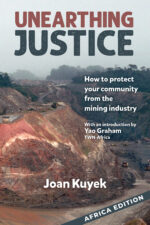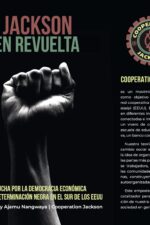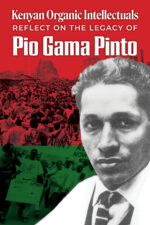-
Post Capitalist Philanthropy
In Post Capitalist Philanthropy, Ladha and Murphy walk us through the deep logic of neoliberalism, the foundations of globalisation and the ideology of corporate free trade… [they] dissect philanthrocapitalism, and they indicate the possibilities of reclaiming the true, economics of the gift, of caring and sharing.— Vandana Shiva, from the Foreword to Post Capitalist Philanthropy.
Ladha and Murphy conduct a “sweeping and engaging ethnography of the archetypal, mythopoetic, institutional, and philosophical territories of capital as a worlding agent and as a carceral dynamic obscuring transformational possibilities…We would need to move and think with our feet again, experimenting beyond money as a paradigm of control. We’ve already begun. ~ Bayo Akomolafe ~ Author, These Wilds Beyond our Fences: Letters to My Daughter on Humanity’s Search for Home and founder of The Emergence Network
This book asks a daring question: can wealth be reappropriated to restore balance to our broken world? A key resource for anyone eager to rethink philanthropy and“ economics in the 21st century. ~ Jason Hickel ~ Visiting Senior Fellow at the London School of Economics, author of The Divide and Less is More
Each page contained in this text“is a reminder of what my heart already knows is true, with information and inspiration that lifts the sense of possibility for making deep change together.
~ Gail Bradbrook ~ Co-founder, Extinction RebellionPost Capitalist Philanthropy is an essential mystical revolutionary handbook that should be required reading for anyone involved in philanthropy.
V (formerly Eve Ensler) —Author of The Vagina Monologues***
Transition Resource Circle thanks Daraja Press, the non-profit Pan-African publisher focused on social justice, for their collaboration in making this book a reality. All proceeds from the book are evenly split between Daraja Press and Transition Resource Circle’s solidarity fund.
-
Settler Colonialism
Settler Colonialism examines the genesis in the USA of the first full-fledged settler state in the world, which went beyond its predecessors in 1492. The text originates from Roxanne Dunbar-Ortiz (2021) “Not A Nation of Immigrants: Settler Colonialism, White Supremacy, and a History of Erasure and Exclusion.
-
Slave King: Rebels against empire: A Novel
A fictionalised account of a slave rebellion in Roman Sicilia more than sixty years before Spartacus, it tells the story of the slave Younis from Afamia (now in Syria), a mystic and seer who led a great uprising sustained much longer than Spartacus’s. As with Messinian rebellion against Spartan oppression centuries earlier, the West has been slow to take such events seriously and reinstate their presence in popular culture as expressions of human spirituality and resistance. The role of seers as leaders is reminiscent of Ayi Kwei Armah’s The Healers on ancient Africa. This book is a fascinating and brilliant telling of popular struggle. It is a minor classic.— Michael Neocosmos, Emeritus Professor in Humanities, Rhodes University, South Africa, author of Thinking Freedom; Towards a theory of emancipatory politics
I highly recommend Basem Ra’ad’s compelling and deeply researched historical novel about the fire-breathing Syrian slave who challenged Roman might in the second century BCE, seeking independence for his thousands of followers. This little-known story of resistance deserves wide attention … an amazing and important story. — Adrienne Mayor, Department of Classics, Stanford University, author, The Poison King: The Life and Legend of Mithradates, Rome’s Deadliest Enemy
What Basem L. Ra’ad has done in this remarkable novel about slave uprisings is to demonstrate how ‘the history of all hitherto existing society is the history of class struggles.’ He shows why the dominant discourse needs to be revised. A moving story that casts light on many strifes in our times. — Tariq Mehmood, author, Song of Gulzarina, Associate Professor, American University of Beirut
Slave King disrupts two millennia of malign stories about one of antiquity’s original slave revolts. Not cannibals, not demons, but slaves, farmers and herdsmen created a kingdom of equality and compassion. In vivid prose and deep knowledge, Ra’ad re-imagines freedom emerging from Mediterranean multicultural shores. It is a profound re-creation of history in thrilling fiction. —Hilton Obenzinger, author of Witness 2017-2020 and American Palestine: Melville, Twain, and the Holy Land Mania
Slave King recreates a major slave revolt in Sicily led by a Syrian magus turned leader, circa 140-132 BCE, decades before Spartacus. He forges a coalition of slaves, farmers and herders to defeat Roman legions and establish an egalitarian entity. The novel uses biased ancient sources but challenges them to speak for the oppressed and provide alternative cultural-historical perspectives relevant to the present. Among its chapters are scenes of exorcism, crucifixion, ancient marriage customs, a play, and several battles.
-
A Mutiny of Morning: Reclaiming the Black Body from Heart of Darkness
Nikesha Breeze has taken pages from Joseph Conrad’s Heart of Darkness, taken his words, and forced them to leave his colonized mind. She has made the words her own in poetic form. She illuminates the invisible Black voices inside, a radical, surgical, and unapologetic Black appropriation, at the same time as a careful birthing and spiritual road map. The resulting poems are sizzling purifications, violent restorations of integrity, pain, wound, bewilderment, rage, and, sometimes, luminous generosity.
The violent, scathing white supremacy of Joseph Conrad’s Heart of Darkness is traversed page by page and word by word in this brilliant prayer/poem—a work of reclamation, redemption, rescue, and repossession. — Wende Marshall, co-editor Insurrectionary Uprisings: A Reader in Revolutionary Nonviolence and Decolonization
-
MATHARE: An Urban Bastion of Anti-Oppression Struggle in Kenya.
History is written by the victors of any war. But what happens when the victors forget to write down their history or omit the cog of the struggle? This is the untold story of Mathare Slum that has never been told to the world: of the role it played in anti-colonial struggle and the planning ground for the Mau Mau struggle which culminated with the fall of the British Colonial Empire in Kenya in the midnight of December 12th 1963. Mathare has also played a critical role in anti-oppression struggle against the four regimes that we’ve had since independence and continues to do so up to date. This history has not been documented and has only been done piecemeal. This has overtime eroded the rich history of Mathare and led to a distorted history of once a planning ground and a bulwark of Kenya Land and Freedom Army (KFLA). The current generation are not cognizant with the critical role Mathare played in the independence of our country.
Presently, Mathare is majorly known for all the negative reasons and its proximity to Mathari Mental Hospital has contorted its image to the outside world. My story tries to re-tell the history of Mathare from an informed insider perspective by threading the struggles from the colonial era to the present day and the role it has played in agitating for social justice.
My story brings to view the past history of this informal settlement in the heart of Nairobi, the present struggle and the promising future through community organizing.
-
Mental Health and Human Rights in Palestine
This is a biography of the life of Dr Eyad El Sarraj, Gaza’s pioneering psychiatrist and founder of the Gaza Community Mental Healthcare Programme, written by his son, Wasseem El Sarraj. It is also a history of Palestine with a focus on Gaza. Eyad’s life was intimately intertwined with Palestine’s struggles so his choices and reactions reflected many of the major historical moments of the last 70 years. The book is an effort to provide a perspective on how the forces around him impacted his life, and how he took control of what he could achieve in an intractable situation. The book is interspersed with Wasseem’s own reflections as a mixed-race Palestinian, and as someone who has lived under occupation in Gaza.
-
Jackson Rising: The Struggle for Economic Democracy and Black Self-Determination in Jackson, Mississippi
Mississippi is the poorest state in the U.S. with the highest percentage of Black people and a history of vicious racial terror. The concurrent Black resistance is the backdrop and context for the drama captured in the collection of essays that is Jackson Rising: The Struggle for Economic Democracy and Black Self-Determination in Jackson, Mississippi. The long-awaited release of this seminal anthology will unveil the strategies and methods being pursued by this ongoing movement for Black community control and people-centered economic development.
“Jackson Rising is an exploration of our experiment in radical social transformation and governance that is directly challenging the imperatives of neoliberalism and the logic and structures of the capitalist system in Jackson and beyond.”
—Kali Akuno of Cooperation JacksonUndeterred by the uncertainty, anxiety and fear brought about by the steady deterioration of the neoliberal order over the last few years, the response from radical activists in Jackson, Mississippi has been to concentrate on building a radical anti-capitalist alternative from the ground up. Inspired by the rich history of struggle and resistance in Mississippi and committed to the vision of the Jackson-Kush Plan, these activists are building institutions rooted in community power that combine politics and economic development into an alternative model for change, while addressing real, immediate needs of the people.
The experiences and analyses in this compelling collection reflect the creative power that is unleashed when political struggle is grounded by a worldview freed from the inherent contradictions and limitations of reform liberalism. As such, Jackson Rising is ultimately a story about a process that is organized and controlled by Black working people who are openly declaring that their political project is committed to economic democracy and radical participatory governance.
“Jackson is rising and emerging as a model for resistance and visioning beyond the challenges of the present. It stands as the dynamic counter to economic redundancy, political marginalization, and systematic state violence.”
—Ajamu Baraka, National Organizer, Black Alliance for PeaceJackson Rising contains contributions from well-known community activists and organizers Hakima Abbas, Kali Akuno, Ajamu Baraka Thandisizwe Chimurenga, Kamau Franklin, Sacajawea Hall, Rukia Lumumba, Ajamu Nangwaya, Max Rameau, Makani Themba, and Jazmine Walker and Elandria Williams, as well as noted journalists and academics including Sara Bernard, Carl Davidson, Bruce A. Dixon, Laura Flanders, Katie Gilbert, Jessica Gordan-Nembhard, Michael Siegel, and Bhaskar Sunkara.
Cooperation Jackson is building a solidarity economy in Jackson, Mississippi, anchored by a network of worker-owned, democratically self-managed cooperative enterprises.
Chris Hedges and Kali Akuno on the Gentrification of Jackson, Miss. (Video)
Mississippi, USA: An Interview with Kali Akuno by Cat Brooks on KPFA’s UpFront
Jackson Rising: At Last, a Real Strategic Plan→By Richard Moser, Black Agenda Report
Left Out, a podcast produced by Paul Sliker, Michael Palmieri, and Dante Dallavalle, creates in-depth conversations with the most interesting political thinkers, heterodox economists, and organizers on the Left. In this episode, we sat down with Kali Akuno — the co-founder and co-directer of Cooperation Jackson.
Real Change
“...the effort in Jackson is an inspiration and evidence of what can be done in the poorest of communities to mobilize, educate, and organize a counterweight to predatory capitalism and White supremacy.
“Jackson Rising” is also a call for help. The vision of “solidarity economics” means making links outside of Jackson and creating alternative economic relationships that can help worker- and consumer-owned businesses survive the blows of everything from business downturns to overt political repression. In Mississippi, the stakes couldn’t be higher.
“And given the national need to turn so-called red states in a progressive direction, Cooperation Jackson could be one beginning.”
-
International Brigade Against Apartheid: Secrets of the People’s War That Liberated South Africa
USD $ 27.00Edited by Ronnie Kasrils with Muff Andersson and Oscar Marleyn.
First published by Jacana Media (Pty) Ltd in 2021, ISBN: 978-1-4314-3202-8, this Daraja Press edition is available in North America and East Africa
I thought I had a pretty good understanding of the global anti-apartheid movement until I read this extraordinary collection of essays. This book blew my mind!
—Robin D.G. KellyWe hear for the first time from the international activists who worked secretly for the ANC’s armed wing, Umkhonto we Sizwe(MK), in the struggle to liberate South Africa from apartheid rule. They acted as couriers, provided safe houses in neighbouring states and within South Africa, helped infiltrate combatants across borders, and smuggled tonnes of weapons into the country in the most creative ways. Driven by a spirit of international solidarity, they were prepared to take huge risks and face great danger.
-
Life Histories from the Revolution: Three militants from the Kenya Land and Freedom Army tell their stories
In the early 1970s, Donald Barnett — who worked with Karari Njama to produce Mau Mau From Within (published by Daraja Press) — also worked with three militants of the Kenya Land and Freedom Army to enable them to tell the story of their experience in fighting for freedom and against British colonialism.
These rarely acknowledged militants were Karigo Muchai, Ngugi Kabiru and Mohamed Mathu. Their stories were published in 1973 by LSM Information Center (Richmond, British Columbia, Canada) as part of a series entitled Life Histories of the Revolution, as The Hardcore: The Story of Karigo Muchai; The Man in the Middle by Ngugi Kabiro; and The Urban Guerrilla by Mohamed Mathu.
As part of its mission of Nurturing reflection, sheltering hope and inspiring audacity, Daraja Press is pleased to republish the three booklets as a single volume that will help a new generation of activists — Kenyan and international — reflect on a history that might inspire audacious struggles to continue the struggle for freedom that was the goal of the Kenya Land and Freedom Army.
Donald Barnett wrote the foreword to each of the booklets as follows:
One of our objectives in launching this series of LIFE HISTORIES FROM THE REVOLUTION is to provide a medium through which individual members of these classes-in-motion within the revolution can speak. We also believe it important that they be heard by those of us who comprise imperialism’s privileged and literate metropolitan minority. Their recounted lives throw our own into sharp relief, while at the same time they offer us fresh perspectives on the processes of repression and revolution from a unique vantage point: from below. Their life stories provide us with a window into the qualitative—as distinct from the merely statistical and quantitative—aspects of class conflict, thus enabling us to better understand and weigh the various factors at work in transforming oppressed masses into revolutionary classes. Again, their remembered life experiences can provide us with significant insights into the dialectical relationships between material and subjective conditions which shape the revolutionary situation, embrace the revolutionary transformation of individuals and classes alike, and move humanity forward toward a new international social formation.
Not all of the individuals whose life histories are included in this series are illiterate peasants or workers. Some are educated defectors from petty bourgeois classes who have joined the revolution and identified their interests with those of the oppressed masses in a very concrete way. They constitute a very important part of the revolutionary vanguard—i.e., the middle cadres who articulate the relationship between leadership and base, who carry forward the military and civilian programs in day-to-day contact with the armed militants and popular masses. The selfless dedication, integrity, comportment and skill of the middle cadres is an essential ingredient within any successful revolutionary process.
The life histories in this series have been recorded and prepared as historical documents from the revolutionary struggles of our time. The techniques and methods employed at each stage of the process, from initial contact to final editing, have therefore been chosen or fashioned with the purpose of guaranteeing the authenticity and integrity of the life history concerned. These stories, then, to the best of our ability to make them so, constitute a body of data and testimony as revealed by a few of those history-makers normally condemned to silence while others speak on their behalf.
We would like to express our thanks to Ole Gjersta, Steve Goldfield and others involved in the LSM Information Centre for making these booklets available.
-
Love Pandemic: Poems
These poems were largely written during the first wave of the COVID-19 pandemic. The last poem in the collection was written at the start of the second wave in Africa. Most were circulated through What’s App voice notes, an intimate way of keeping distance while reaching out to touch.
This publication is available in the following formats: a printed book, ePub, PDF and audiobook.
-
Nigeria and the Challenge of Federalism
The book identifies three key moments in Nigeria’s experience with federalism and makes the argument that a complex and socially-diverse country like Nigeria can only be successfully governed by a truly federal arrangement, and not the present unitary contraption that has only delivered poverty, social unrest and the powerful centrifugal forces that are now threatening the very existence of the country itself. The time has come, write Ike Okonta, to convene a conference with sovereign powers to design a federal constitution for the country. The current process of amending the 1999 Constitution by the National Assembly will not suffice. The document is so hopelessly flawed that only its discarding and a fresh effort at constitution-making will suffice.
Biographical Notes
Ike Okonta was, until recently, a Leverhulme Early Career Fellow in the Department of Politics at the University of Oxford. Currently, he is Coordinating Fellow of the New Centre for Social Research, Abuja, Nigeria. He is author of Where Vultures Feast: Shell, Human Rights and Oil (2003) Paperback; When Citizens Revolt: Nigerian Elites, Big Oil and the Ogoni Struggle for Self-Determination (2008); Biafran Ghosts: The Massob Ethnic Militia and Nigeria’s Democratisation Process (2012); The Failure of Leadership in Africa’s Development (2020)
Table of Contents
1. Nigeria’s Flawed Federalism: The Colonial Roots, 2. Killing Federalism: The Soldiers Step In, 3. Consolidating Centralism: The Second Republic and After, Challenging Centralism or the Spirit of Ken Saro-Wiwa, 5. Conclusion: Bringing Back Federalism. 6. Acknowledgements.
BISAC and Keywords
POLITICAL SCIENCE / Colonialism & Post-ColonialismPOLITICAL SCIENCE / ConstitutionsPOLITICAL SCIENCE / World / AfricanKeywords: Nigeria, Federalism, Sovereignty, National Assembly, biafra, Ogoni, Ken Saro-WiwaAudienceGeneral/Trade – Adult fiction and nonfiction -
Racism, Capitalism, and COVID-19 Pandemic
The COVID-19 pandemic has brought into sharp relief the deep structural problems affecting nonwhite racialized workers in the core and periphery. Yet, many social scientific analyses of the global political economy, at least in the pre-COVID era, are race neutral or willfully indifferent to the persistent racial pattern of global inequalities. This piece seeks to understand how the unremitting super-exploitation of Black and other nonwhite racialized labor in the core and the periphery persisted throughout the COVID-19 crisis through the lens of Black radical scholarship on racism and capitalism. It historicizes the pandemic within the long arc of racist capitalist labor super-exploitation at the birth of capitalism and in its subsequent unfolding. It also shows the mechanisms by which COVID-19 has exacerbated the already existing, structural racial and colonial inequalities that undergird the global economy. White capital and European and North American states have deemed Black and other nonwhite racialized labor “essential” to maintaining profits and called upon these workers both within North America and Europe and in the global periphery to ensure continued production and profits in almost every realm. These workers were seen as essential but expendable; compelling them to continue laboring during the deadly pandemic increased the precarity and danger they faced and exacerbated racial and economic inequalities both within and between countries. At the same time, neoliberal racist states are further marginalizing these very workers by excluding them from much needed social protections to cope with the impacts of COVID-19 on their health, income, and overall well-being. The piece also illuminates why, despite the dire social and economic conditions threatening the lives and livelihoods of workers writ large, white workers continue to refuse to join a multiracial antiracist movement for liberation from imperial and racial capitalist exploitation. The author ends by reflecting on what it means to “return to normal” within the architecture of racial capitalism and the pursuit of a different path to justice and freedom.
See also our interview with Zophia Edwards and David Austin.
-
JACKSON EN REVUELTA
Suggested Price: USD $ 10.00[Spanish edition of Jackson Rising]
Mississipi; el estado más pobre de los EEUU, el que tiene el porcen- taje más alto de población Negra y con una historia dramática de terror racial y de resistencia Negra. Este es el contexto de la resistencia presentada en este recopilatorio de escritos.
Sin desanimarse por la incertidumbre, el miedo y la an- siedad causadas por el constante deterioro del orden ne- oliberal, la respuesta de las activistas Negras de Jackson ha sido organizarse. Inspiradas por la rica historia de lucha y resistencia en Mississipi y comprometidas con la Estra- tegia Jackson-Kush, construyen instituciones arreladas en el poder comunitario, que combinan política y desarrollo económico y que satisfacen necesidades reales de la gente para crear un model social alternativo.
Las experiencias y análisis recogidas reflejan el poder creativo que se genera cuando la lucha política se basa en una visión del mundo liberada de las contradicciones y li- mitaciones inherentes al liberalismo. Esta es, en definitiva, una historia sobre un porceso decolonial y socialista, orga- nizado y dirigido por personas Negras.
-
Kenyan Organic Intellectuals Reflect on the Legacy of Pio Gama Pinto
Launch of the book in Nairobi!
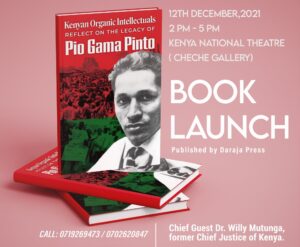
Red salute to the organic intellectuals of Kenya for putting together their reflections in this absolutely fascinating compilation. As I read it, I want to read more and [the] more I read my appetite to “meet” our unsung heroes in this part of Africa deepens. https://t.co/wcLHssuiBT
— Issa Shivji (@IssaShivji) November 30, 2021
Pio Gama Pinto has long been the ‘unsung martyr ‘ in Kenya’s revolutionary history. It is a real mark of the consciousness of the new generation of organic intellectuals from the social justice centres that they chose to read, discuss, critique, and write about Pinto. A must read! —Dr. Willy Mutunga, Chief Justice & President of Supreme Court, Republic of Kenya, 2011-2016
I am inspired by reading your thoughts. Pio has shown you how: Constancy in your ideals.
Perseverance in your actions. Use every opportunity to further justice. Use every opportunity to subvert injustice. Speak out. Always place the Alternative before the people. Find what is already available, small or big, to further social justice. Much is already in the Constitution and laws. Enforce it. Pio created political space from blank walls and barbed wire. Finishing your book, I felt renewed. I thank you.
– Pheroze Nowrojee, Senior Counsel, author of Pio Gama Pinto, Patriot for Social Justice (2007).
This booklet on Pio Gama Pinto has been produced in the tradition of ‘looking back, in order to move forward’ to not only salvage history but also to use it as a mirror to reflect on the current political, economic and social conditions in Kenya. The essays, dubbed reflections, that appear in the booklet are a product of the efforts and dedication of young women and men under the banner of the ‘Organic Intellectuals Network’ in Kenya. We use the concept of ‘organic intellecutal’ as developed by Antonio Gramsci.
Members of the Organic Intellectual Network selected the book Pio Gama Pinto: Kenya’s Unsung Martyr 1927-1965 by Shiraz Durrani (Vita Books, 2018) as a basis for discussion for celebrating and remembering the life of Pio Gama Pinto, Kenya first Martyr, a dedicated and selfless individual in the struggle for freedom in Kenya. Pinto has not been fully appreciated and recognized for his efforts in the fight for independence and post-independence struggles that were characterized by ideological confrontation between capitalism and socialism. Each of the 14 participants in the discussions were asked to write their reflections on what they had learned, based on their daily struggles as activists, students and revolutionary community organizers in their communities. These discussions were accompanied by several activities at the beginning of 2021 to remember Pio Gama Pinto on the 56th anniversary of his assassination in 1965. These activities included reflections at his memorial grave and the production of a Pio Gama Pinto podcast.
The short book aims at retrieving and providing a genuine national direction for the struggles of Kenyans based on historical clarity devoid of any obscurity and distortion. It is our hope that these simplified reflections will introduce Pio Gama Pinto and socialism to the Kenyan people and across the world.

